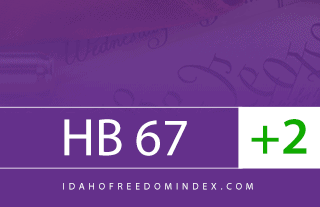


Bill Description: This bill would eliminate Idaho’s grocery tax credit and exempt food products from Idaho’s sales tax.
Rating: +2
Does it directly or indirectly create or increase any taxes, fees, or other assessments? Conversely, does it eliminate or reduce any taxes, fees, or other assessments?
This bill would phase out the sales tax on groceries. Eliminating the grocery tax would save all Idahoans a substantial amount of their total tax burden and would substantially serve Idaho’s poorest. A tax on groceries is a sort of regressive tax, as groceries take up a larger percentage of the total budget for the poor it impacts them more. Eliminating foods and food products, as defined under the federal SNAP program, would reduce tax revenues by an estimated $53 million beginning in Fiscal Year 2019. Additionally, the bill would increase revenue sharing for localities to $26 million.(+1)
Does it increase government redistribution of wealth? Examples include the use of tax policy or other incentives to reward specific interest groups, businesses, politicians, or government employees with special favors or perks; transfer payments; and hiring additional government employees. Conversely, does it decrease government redistribution of wealth?
Idaho’s grocery tax credit program redistributes wealth by disbursing $100 to most Idahoans who apply for it and $120 to elderly citizens. This bill will eliminate this program. (+1)
Update: This bill was amended in the Senate on 3/16 and again on 3/21. Our analysis was updated 3/22 to reflect these changes.


